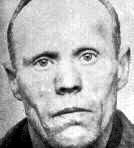|
Diminished responsability defence
Manchester Guardian
January 31, 1958
On January 30 Albert James Matheson,
aged 51, was found guilty of the capital murder of Gordon Lockhart, aged
15, whose mutilated body was found in a sump under the boxing ring of
the hall in Newcastle where Matheson was employed as a handyman.
Matheson, who was a sexual pervert, had formed an unnatural association
with the boy.
He told the police that he had taken £35 in a
registered envelope out of the boy's pocket and that was why he had
killed him. He was charged with capital murder on the basis that it was
committed in furtherance of theft.
The defence was that Matheson, although not insane in
the normal sense, in that he knew right from wrong, suffered from
abnormality of mind such as to diminish his responsibility for what he
had done, and that he ought therefore to be convicted of manslaughter,
not murder. The question was, was his mentality so abnormal, due. to
arrested or retarded development or disease, that he was not mentally
responsible for what he had done ?
Dr. Ian Pickering, senior medical officer of Durham
Prison, gave evidence that Matheson, who was diagnosed as a psychopathic
personality in 1943, had between 1935 and 1943 been much given to self-injury,
and had been a voluntary patient in a mental hospital in September,
1957.
His mental age was less than that of a boy of 10, and
was in Dr. Pickering's view abnormal at the time of the act to an extent
which substantially interfered with his responsibility. His idea of
right and wrong was very elementary.
Dr. Robert Orton, consultant psychiatrist at the
Royal Victoria Infirmary, Newcastle, agreed with Dr. Pickering's view,
and Dr. Thomas Cuthbert, consultant psychiatrist to the Newcastle
Hospitals Board, added that Matheson had no feeling of remorse or of
having done wrong, and that the question of right or wrong hardly ever
entered his mind.
In his summing-up, the judge, after dealing with the
background of the case, directed the jury that, if they were satisfied
that Matheson was suffering from abnormality of the mind which
substantially impaired his mental responsibility, the only verdict open
to them was manslaughter.
Sexual perversion was not an abnormality of the mind,
but an abnormality of morals. After an absence of 65 minutes the jury
returned a verdict of capital murder, and the judge sentenced Matheson
to death.
|

